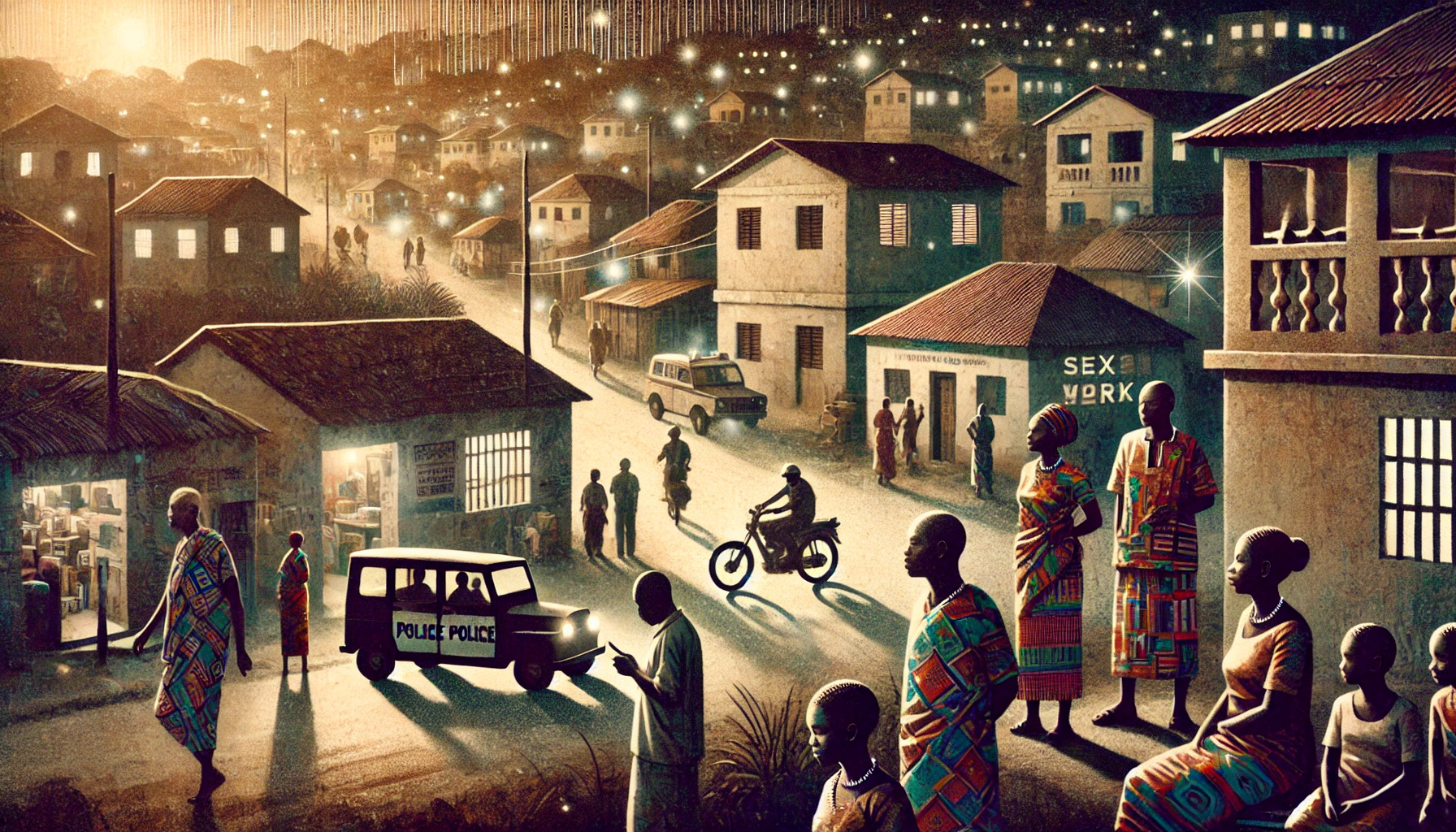Economic Necessity and Colonial Legacies: The Reality of Migrant Sex Work in Ghana
The research examines the complex exploitation of migrant women in Ghana's sex sector, highlighting the inadequacies of the "modern slavery" paradigm and emphasizing the role of economic necessity and colonial legacies in shaping unfree labor. It calls for a rethinking of policies to address the structural drivers of labor exploitation.

A research conducted by the University of Manchester, delves into the intricate realities of migrant women's experiences in Ghana's sex sector, moving beyond the oversimplified narratives of slavery and trafficking. Through qualitative data collected in 2021, including interviews with 30 migrant sex workers, the study uncovers a complex landscape of labor exploitation that cannot be easily categorized into voluntary or coerced participation. Instead, the research emphasizes the concept of "unfree labor" as a more accurate framework for understanding the range of exploitative conditions these women face. This unfree labor is not merely a result of individual acts of coercion but is deeply rooted in economic necessity, state laws, neoliberal economic restructuring, and the enduring legacies of colonial capitalism in Ghana.
Challenging the "Modern Slavery" Paradigm
The paper critiques the widely accepted "modern slavery" paradigm, which often conflates various forms of labor exploitation under a single umbrella, thus failing to capture the diverse and nuanced realities of migrant sex workers. The term "modern slavery" is frequently employed in policy and public discourse to describe extreme forms of exploitation such as forced labor, human trafficking, and child slavery. However, this study argues that such a broad categorization overlooks the specificities of the Ghanaian context, where migrant women often enter the sex sector not through direct coercion but due to pressing economic needs and the imperative to provide for their families. The concept of unfree labor, as used in this research, recognizes the continuum of exploitation that these women experience, where economic coercion and structural constraints are as significant as, if not more than, overt acts of physical or sexual violence.
Economic Necessity as the Primary Driver
In Ghana, the entry of women into the sex sector is often driven by a combination of financial hardship, unemployment, and the need to support dependents, particularly children. Many of the women interviewed in the study described how their involvement in sex work was a means of survival in the face of limited livelihood options. The research highlights how the criminalization of sex work in Ghana, coupled with a lack of labor rights and protections, exacerbates the vulnerability of these women to various forms of exploitation. The study also points to the role of neoliberal economic policies, which have led to widespread precarization and informalization of labor markets in Ghana, further entrenching the unfree labor conditions faced by migrant sex workers.
Beyond Individual Cases of Coercion
The findings of the research challenge the liberal perspective on slavery and trafficking, which tends to focus on individual cases of coercion and control. Instead, the study reveals that the primary factor preventing women from leaving sex work is not direct physical coercion but economic necessity. This economic coercion is often linked to the broader crisis of social reproduction in Ghana, where women are compelled to enter and remain in the sex sector to meet their household's survival needs. The research underscores the importance of considering these structural factors in any discussion of labor exploitation and trafficking, as they play a critical role in shaping the conditions under which women in Ghana's sex sector live and work.
Colonial Legacies and Contemporary Realities
The study also draws attention to the ways in which historical legacies of colonial capitalism continue to influence contemporary migration patterns and labor conditions in Ghana. The intra-regional migration of women from Nigeria to Ghana for sex work, for instance, is not a new phenomenon but has deep roots in the colonial past, where women’s labor was often exploited for the benefit of colonial powers. Today, these patterns of migration and exploitation are reinforced by neoliberal economic policies that have led to significant gender, class, and spatial inequalities in Ghana. The study’s findings indicate that migrant sex workers, particularly those from Nigeria, are especially vulnerable to unfree labor conditions due to their precarious legal status and the lack of adequate protections.
Rethinking Anti-Trafficking Interventions
The research calls for a rethinking of anti-trafficking and public health interventions in Ghana, advocating for approaches that address the root causes of labor unfreedom. This includes recognizing the role of economic coercion and structural inequality in driving women into the sex sector and ensuring that policies aimed at protecting migrant sex workers do not inadvertently exacerbate their vulnerability. The study’s focus on the voices and experiences of migrant sex workers themselves offers valuable insights into the complex interplay of agency, coercion, and exploitation in Ghana’s sex industry, challenging dominant narratives that simplify these issues into binary categories of freedom versus slavery. By doing so, it contributes to a more nuanced understanding of unfree labor in the global economy, particularly in the context of the Global South, and highlights the need for policies that are informed by the lived realities of those most affected by labor exploitation.
- FIRST PUBLISHED IN:
- Devdiscourse










